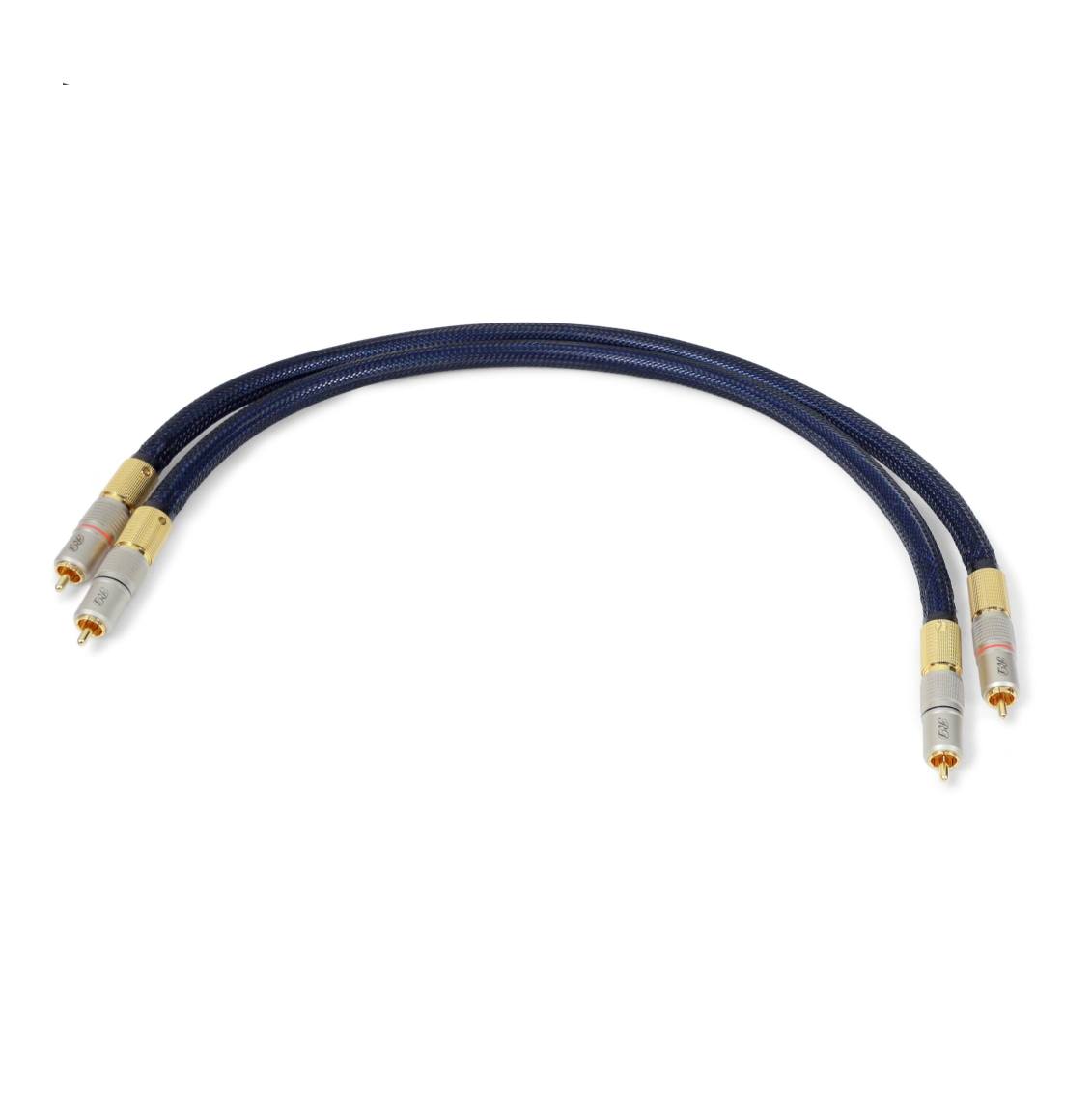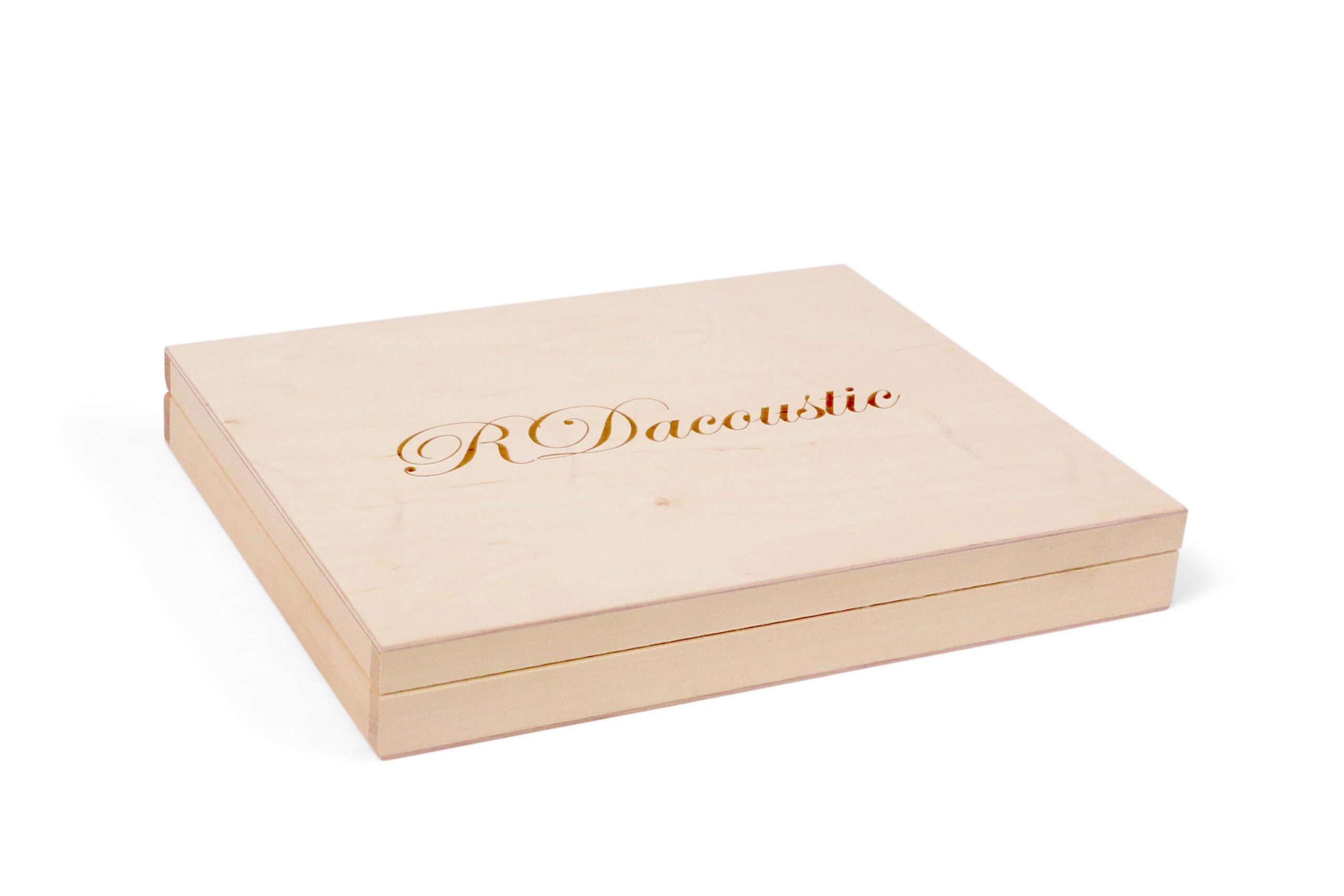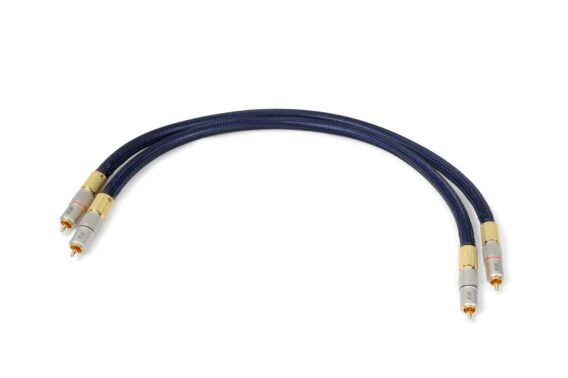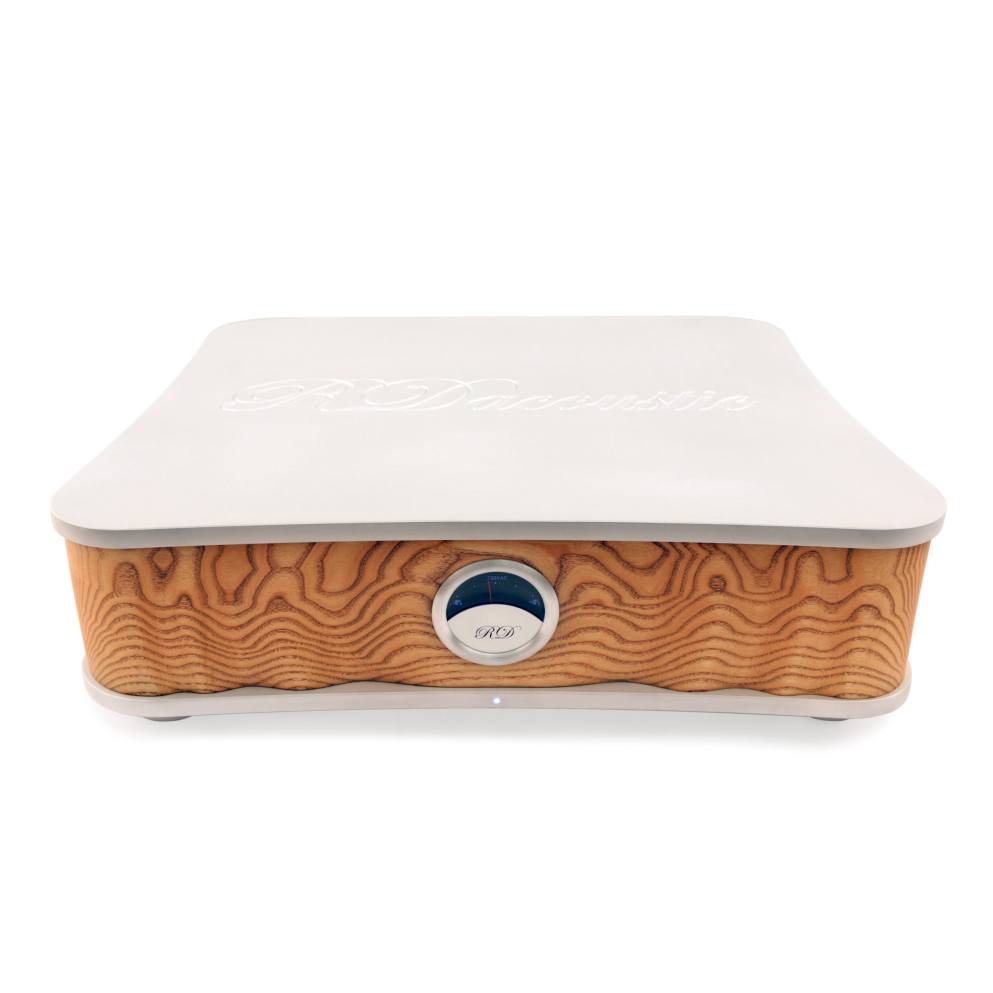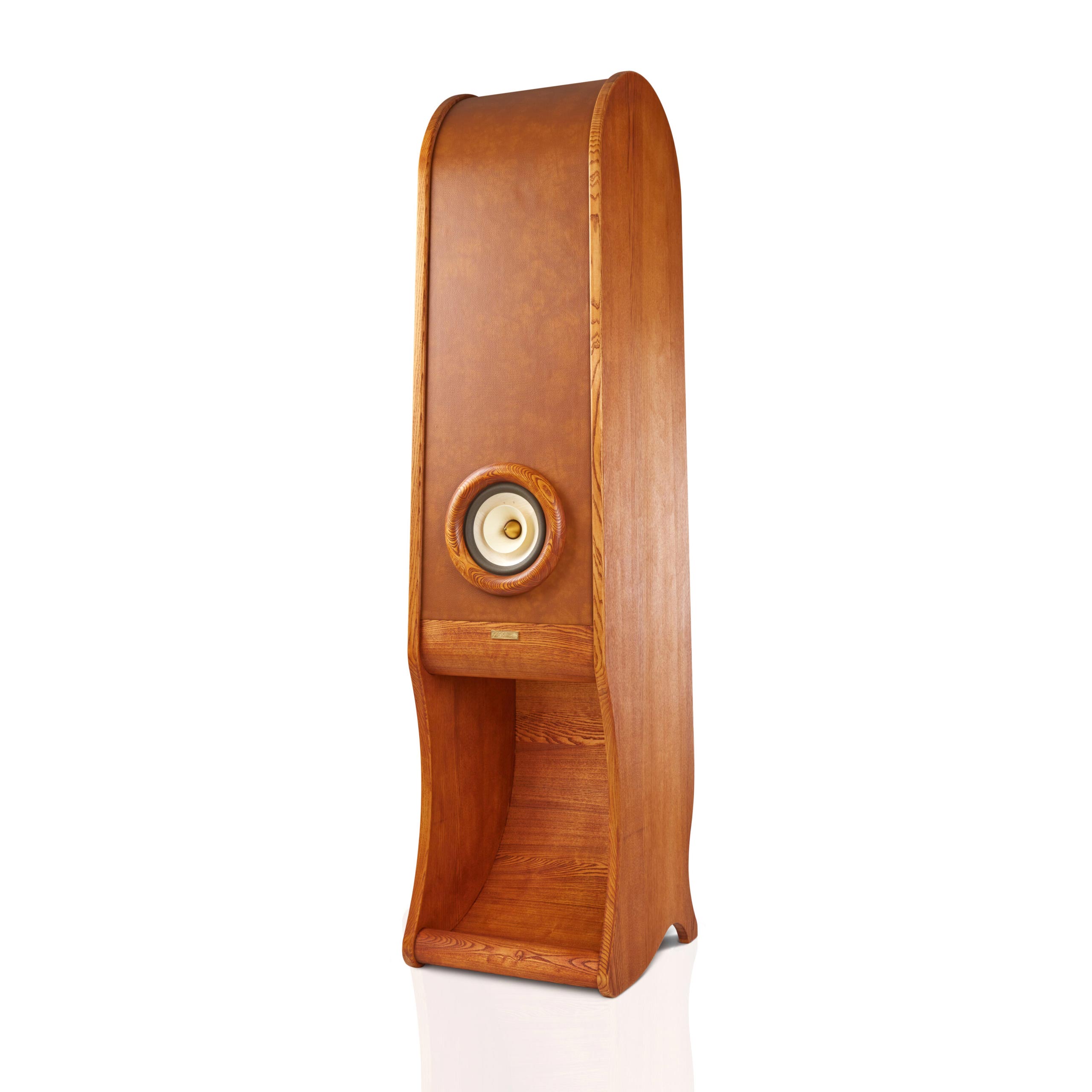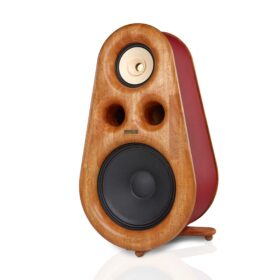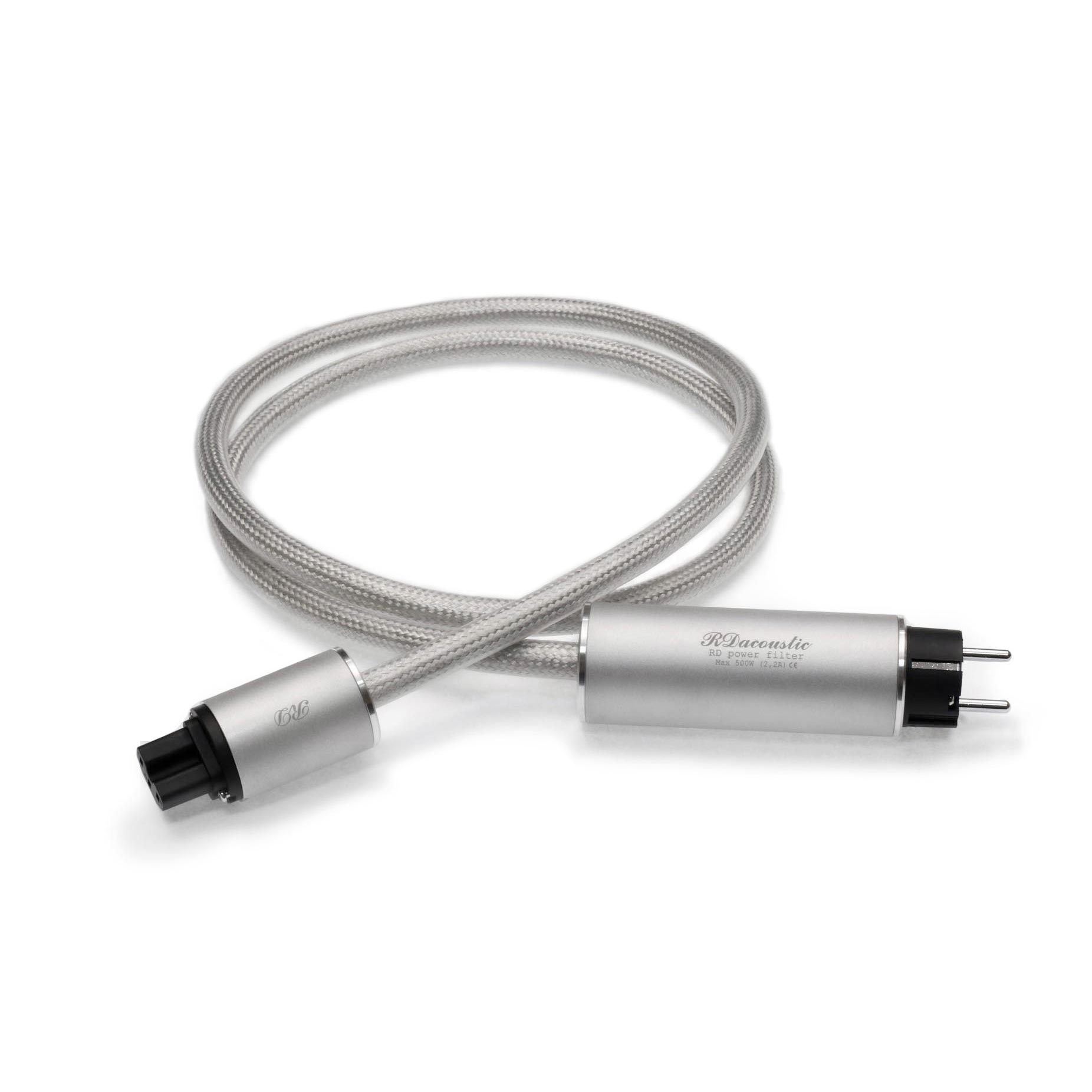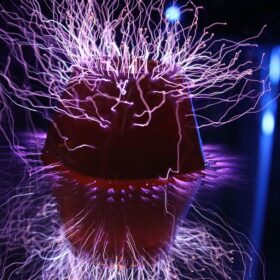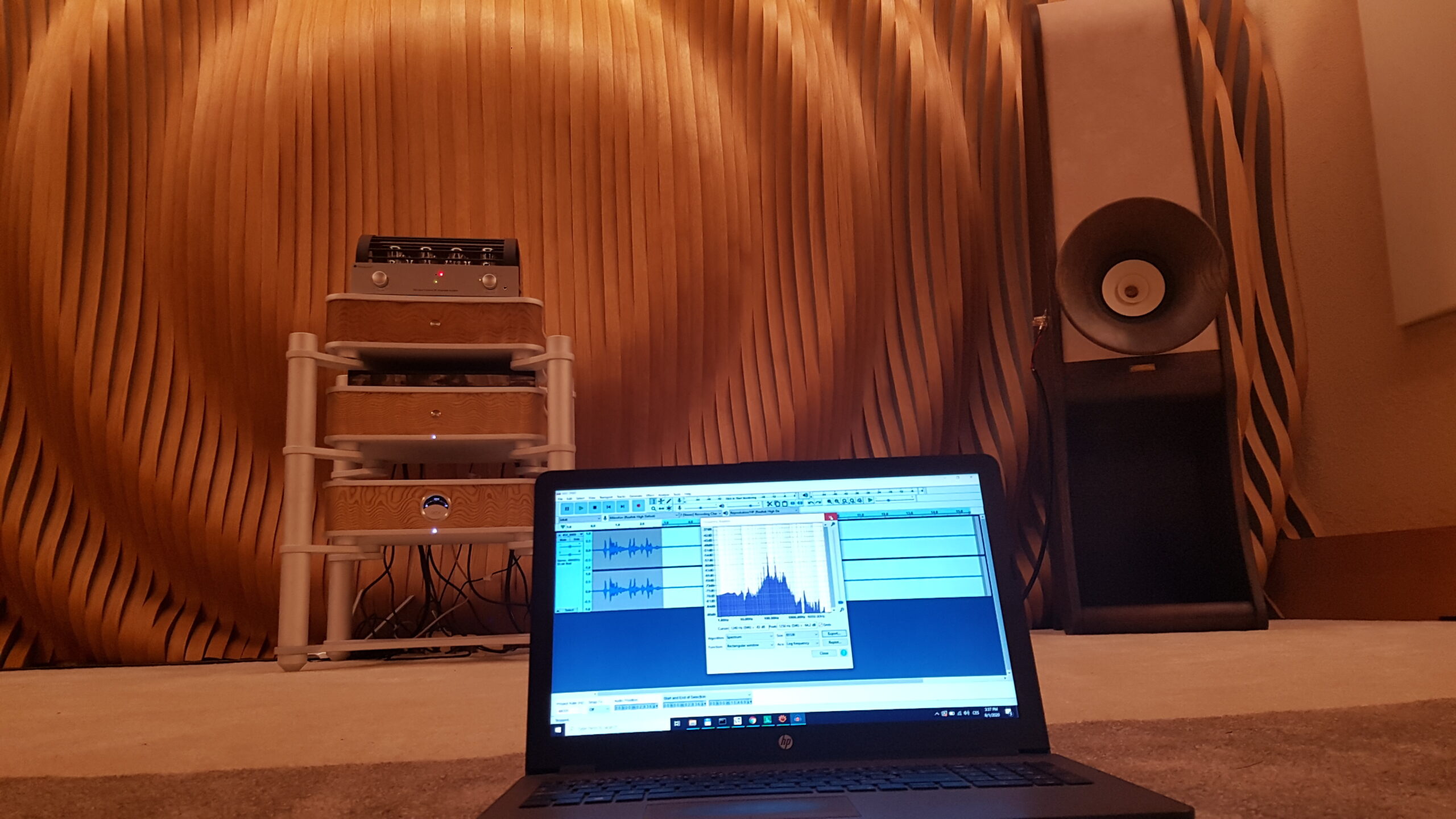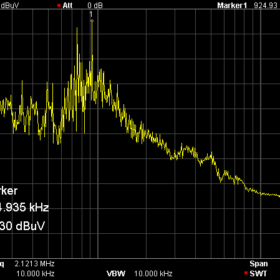RD OCC Silver SF2 RCA
RCA referenční propojovací kabel z ryzího stříbra OCC. Ruční výroba. Signálová cesta je pájena speciálním bezkyslíkatým cínem s přísadami stříbra.
Již žádné překážky v signálové cestě vašich audio komponentů.
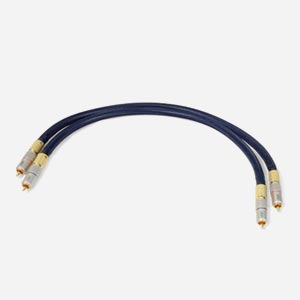
| Hloubka | cm |
| Šířka | 50 cm |
| Výška | cm |

| Hloubka | cm |
| Šířka | 75 cm |
| Výška | cm |

| Hloubka | cm |
| Šířka | 100 cm |
| Výška | cm |
RD OCC Silver SF2 RCA
Parametry
| Zlacené: | 24 karátovým zlatem |
| Provedení: | Utahovatelné |
| Krystalická mřížka: | Jednotně orientovaná |
| Čistota stříbra: | 99,99998 % |
| Dvojité stínění: | Al-Mylar + SPC |
| Dielektrikum: | Teflon |
| Průřez signálového vodiče | 2x 0,33 mm |
| Délka: | 75 cm |
| Průřez: | 12 mm |
| Hmotnost: | 420 g |
Specifika
|
Se signálovými částmi zlacenými 24 karátovým zlatem pro zvýšení povrchové vodivosti a minimalizaci skin efektu. Zlatá vrstva zaručuje dokonalý elektrický kontakt, chemickou stálost a odolnost proti oxidaci. Vnitřní signálový kolík je oddělen teflonovým pouzdrem od vnějšího prstence. Lamely vnějšího prstence se k protikusu utahují šroubováním šedého hliníkového krytu. |
|
Dvojitě stíněný (Al-Mylar + SPC opletení). Signálové vodiče jsou twistovány (krouceny). Dielektrikum mezi stíněním a signálovými vodiči je vyrobeno z teflonu, který zlepšuje frekvenční linearitu kabelu. Díky procesu tažení kovů OCC (Ohno Continuous Cast – 1986) lze dosáhnout čistoty stříbra 99.99998 %. Hlavní technologickou výhodou OCC je tažení vodiče ve směru jeho krystalické mřížky, podobně jako u tažení křemíku. Elektrický proud elektronů v OCC stříbře nemá žádné překážky oproti vodičům taženým standardní technologií, kde jsou mikrotrhlinky, nečistoty, vzdušný kyslík a produkty jeho oxidace. Pomocí OCC technologie lze táhnout drát o průměru 50 mikronů v délce až 6,5 km ve stejné orientaci krystalické struktury vodiče. |
Příslušenství
Je komplexní síťový filtr s integrovanou přepěťovou ochranou. Účinně omezuje všudypřítomné VF rušení z napájecí sítě a poskytuje tak vašim citlivým audio komponentům čistý zdroj elektrického proudu. Zvětšením odstupu šumu na pozadí od užitečného signálu se zvuk stává křišťálovějším, s větším množstvím detailů.
Jsou určeny pro velmi věrný stereo poslech. Při podání hudby se vyznačují extrémním množstvím detailů, vynikající lokalizací nástrojů a prostorovostí. Obsahují pouze jeden vysoce citlivý reproduktor doplněný unikátní hornovou ozvučnicí.
Inspirováno minulostí, formováno přítomností.
Originalitou řešení, optimalizací ozvučnice bez konstrukčních kompromisů, množstvím testů podložených měření vznikly reprosoustavy, které přináší velmi detailní poslech s mohutnou basovou složkou. Tyto unikátní high end reprosoustavy využívají ideálních vlastností širokopásmového reproduktoru. Vyznačují se detailním přednesem, vynikající prostorovostí a lokalizací nástrojů.
Okuste dokonalost podání nejjemnějších detailů.
Je unikátní síťový filtr kombinovaný s přepěťovou ochranou. Tento výrobek z dílny RDacoustic účinně chrání vaše audio komponenty i ostatní zařízení proti přepětí při úderu blesku a současně čistí napájení od nežádoucího elektromagnetického rušení („elektrosmogu“). Výsledkem je navýšení kvality zvuku vaší audio techniky.
Chraňte svá zařízení chytře.
Otázky a odpovědi
Proč OCC stříbro?
OCC je v dnešní době nejdokonalejší technologií pro tažení vodičů. Co se týče celkové kvality, množství vnitřních mikrodefektů a celkové čistoty je o tři řády dokonalejší než v audiu používaná technologie OFC (Oxygen Free Copper). OFC měďěný vodič má kolem 1 300 změn krystalické mřížky na 1 m, zatímco OCC technologií je tažen jeden krystal v délce několika kilometrů. (Více o OCC, v angličtině, PDF)
OCC jednoduše poskytuje naprosto nejčistší základní platformu pro vedení signálu. Pro vedení signálu používáme OCC vodič s nejnižšími možnými nečistotami a s jednotně orientovanou krystalickou strukturou. V signálové cestě vašich high end audio komponentů tak nebudou překážky v podobě nesourodosti krystalické struktury a mikroprasklin vyskytujících se ve vodičích OFC.
Z našeho blogu
Je pojem „skin efekt“ve světě audiofilů pouze „vúdú klamem“, nebo má tento jev popsaný v roce 1892 J. C. Maxwellem skutečně vliv na reprodukci hudby?
Naše nové poslechové studio neslouží jen pro poslech hudby, ale poskytuje nám také dostatečný prostor pro různé experimenty a měření. Tento článek se bude zabývat měřením šumu audio sestavy ve slyšitelném spektru, kde mikrofonem měříme šum vycházející přímo z reproduktoru. Porovnávat budeme reálný šum zesilovače, který je napájen přímo ze sítě a potom přes síťový filtr RD EMI Neutralizer.
Zajímá vás, jaké rušení se vyskytuje v rozvodné síti? Proč se vůbec zabývat filtrací napájení? Pro názornost jsem měření provedl na čtyřech různých místech. Pro porovnání byl zvolen klasický EURO kabel a RD Power Filter.
Odběr novinek
Dáme vám vědět o naší účasti na výstavách, o nových recenzích a produktech, o nových místech, kde si můžete reprosoustavy poslechnout, nebo o nových příspěvcích na našem blogu. Nebudeme vám posílat spam.
